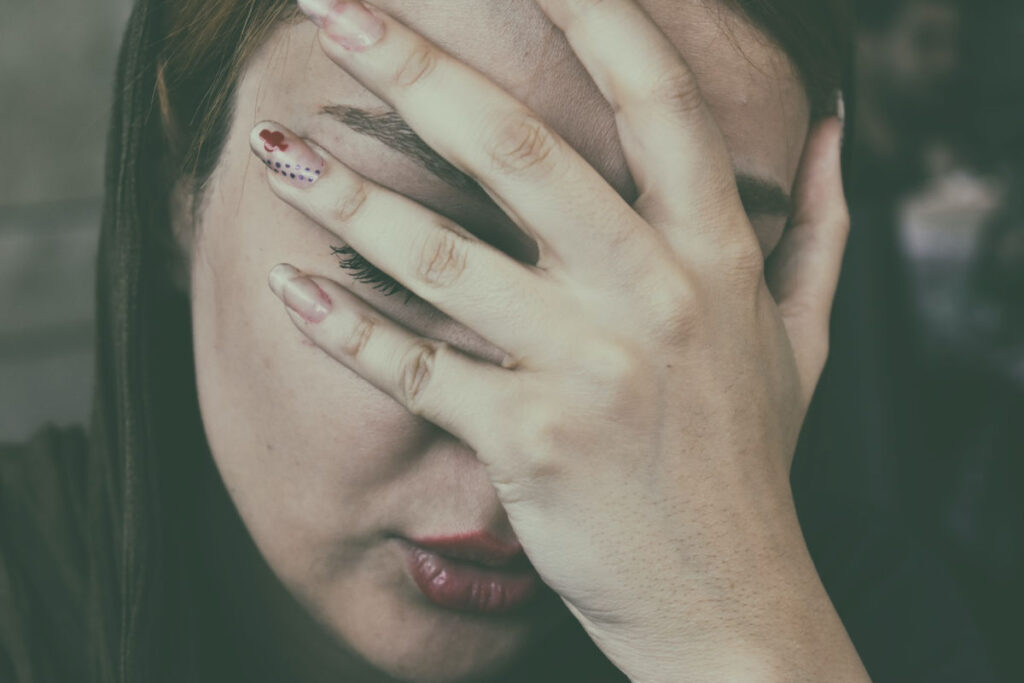Eczema is a common skin condition that causes dry skin, inflammation and itching. One of the most difficult places to deal with eczema is on the eyes, as the skin around the eyes is very delicate and sensitive. When I had my worst eye eczema outbreak, it was horrific. But one of the worst parts was the swelling.
Swelling caused by eczema on the eyes can not only be uncomfortable, but unsightly and embarassing too – I used to wake up with eyes so swollen I would have to sit there with bags of frozen peas on them before going to work. One time it was so bad I couldn’t see out of my left eye! If your eye ecema is this bad, it’s time to bring out the big guns. And while I’ll always advocate for using natural and organic treatments, sometimes you really do just need medical help.
I wanted to put together a blog post about the best way to handle eye eczema, and the things that I found helped the most.
Cold Compresses
Cold compresses are one of the simplest and most effective ways to reduce the inflammation and swelling caused by eczema on the eyes. Cold compresses can be made by placing a cold, damp cloth over the affected area for several minutes at a time. You can also do what I did, and use a bag of frozen peas wrapped in a tea-towel.
Cold compresses are a super affective and natural way to bring down swelling, because the cold temperature helps to constrict blood vessels, which then reduces the inflammation and swelling.
Topical Corticosteroids
Whilst I don’t like using them on a regular basis and avoid using them whenever possible, sometimes your skin and body needs an extra helping hand. Topical corticosteroids can be an effective way to reduce eye eczema symptoms like swelling – just make sure you only apply a very thin amount and only use it for a couple of days.
These steroid medications are available in the form of creams, ointments, and gels and can be applied directly to the affected area (just be very careful when applying it to the face and eye area!). These steroid products work by reducing inflammation and itching, and are available in different strengths, from mild to strong. It’s important to use the lowest strength possible to avoid side effects, and to consult with a doctor before using them.
Antihistamines
My eye eczema is caused by an allergy to mould, so antihistamines really help to reduce swelling when I have an eczema outbreak. Personally I use Fexofenadine, but your doctor will be able to conduct allergy tests to find out what you’re allergic to and then prescribe the right antihistamines depending on your allergy.
Avoid Any Irritants
Once you’ve had allergy tests done and know whether you have any allergies, avoiding those allergens that may be causing or worsening your eczema is crucial. Because of my mould allergy, I make sure I don’t stay anywhere that has damp, I avoid blue cheeses, and I make sure not to run through the piles of dried out, decaying leaves in the autumn months!
Sometimes you may not have an allergy, but a certain chemical or product might irritate your skin, especially if your skin is sensitive. Common allergens and irritants include certain soaps, cosmetics, and laundry detergents. Identifying and avoiding these triggers can help reduce symptoms of eczema and eye eczema, including swelling.
Moisturising The Skin
Moisturising is a really important part of managing eczema on the eyes. Keeping the skin around the eyes well moisturised can help prevent the eczema from worsening, and reduce itching and inflammation. Look for a fragrance-free, hypoallergenic moisturiser, and apply it gently to the affected area both night and day.
If your skin is particularly dry (it may be worse in the winter months) then make sure to keep applying moisturiser throughout the day whenever it dries out. Having a regular skincare routine for sensitive skin can also help, as it will help to keep your skin hydrated all-year-round.
See a Doctor if the Swelling Doesn’t Improve
If the swelling is severe, or if your eczema doesn’t improve with self-care measures, it is best to consult with a doctor. A doctor can evaluate your condition and recommend additional treatment options alongside steroid and antihistamines, such as other oral medications or light therapy. Although as always, it’s important to remember that everyone’s skin is different, so what works for one person may not work for another.
Eczema on the eyes can be a difficult and uncomfortable condition to deal with. Trust me, I’ve been there. I’ve hidden my face in public and worn glasses to try and hide it. But, there are a few things that can be done to reduce the swelling and inflammation caused by eczema on the eyes. Cold compresses, topical corticosteroids, moisturising, avoiding allergens or irritants and consulting with a doctor are all effective ways to manage this condition.
Remember, it’s important to be patient and persistent in managing eczema, as it may take time to find the right treatment for you and your skin. And as always, please, please consult with a doctor if the symptoms persist or worsen!

